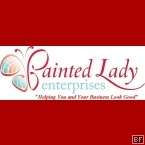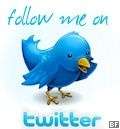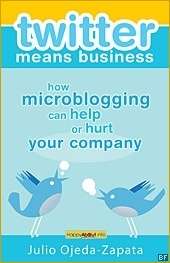So what is a Networking N.E.R.D. you ask?
It means - 'Networking Everyday Requires Dedication!' That is especially true in the summertime when our interests are on doing other fun activities that don't necessarily include work/business.
Fun abounds during the summer. Networking can, too. But it requires you to be intentional. Remember, networking can occur anywhere, anytime. Avoid the summertime networking blues and make the most of the fun (and networking) in the sun!
It means - 'Networking Everyday Requires Dedication!' That is especially true in the summertime when our interests are on doing other fun activities that don't necessarily include work/business.
Fun abounds during the summer. Networking can, too. But it requires you to be intentional. Remember, networking can occur anywhere, anytime. Avoid the summertime networking blues and make the most of the fun (and networking) in the sun!
In
1958, Eddie Cochran sang a very famous rock-n-roll chorus:
Ah, Summertime. That time when we look forward to the weather, family, vacation, relaxation, beach, and the fun that comes along with the season.
Every once in a while I
hear a business person say that their business slows down during the summer
months. I also know of many businesses that flourish in the summer. So
why are some up and some down? It is a matter of gearing towards the
season. Winter coats sell better in December than July and bathing suits sell
better in June than January! So do you change your networking strategy for
the season?
Have you re-tooled your networking machinery?
Are you being intentional with your networking? I subscribe to the
philosophy that every event can be a networking opportunity as long as you honor
the event.
As an intentional networker, we must step outside of our networking comfort zones and look in other places to find new networking opportunities.
Where does an intentional networker start? Begin by searching where you spend your time during the summer months.
As an intentional networker, we must step outside of our networking comfort zones and look in other places to find new networking opportunities.
Where does an intentional networker start? Begin by searching where you spend your time during the summer months.
What summertime
networking activities are you attending?
... Bar Be Que?
... Pool Party?
... Lake Party
... Lake Party
... Picnic?
... Wedding?
... Wedding?
... Golf... Boating...Ball Games...Tennis...
Gardening?
There are many Summertime Networking Opportunities!
Remember that a good networker has two ears and one mouth and uses them
proportionately! Listen to what everyone
is really saying. Pick up on the ques for business and
referrals for other referral partners.
Sports Fields. Kids play
baseball, softball, and soccer. Parents spend night after night at practices,
games, or volunteering at the concession stands. These parents/athletes are
business people-people who may share your target market. Discussions can
range from vacation, work, home repairs, to neighborhood politics. A simple
conversation or offer to help amid the extra innings, may lead to growing your
business.
Neighborhood Festivals. Summer is the time of festivals and county fairs. It's a time for rides, music, games, and good greasy food! It can also be the time to talk to neighbors in more detail. We can build relationships beyond the friendly waves while mowing grass. Take the time to get to know your neighbors. Host a neighborhood cookout to strengthen or even start relationships. Who knows, they may hold the key to your ideal referral partner.
Ball Game Networking!
A great networking strategy is to get tickets to a ball game and invite a
business owners and/or a potential referral partners. Whether your team wins or
loses great connections can be made!
The FOUR hour one to
one! If you are a golfer, you know what I mean! Find a fellow business
owner who also plays golf. Set up a round and you each bring a client.
What a great way to solidify a top referral! You do not play golf?
Is there an activity that you do that you and a fellow business person can
invite clients too?
Any place you go with family, friends or strangers is a networking opportunity! (as long as you honor the event).
... Bring Your Business
Cards!
... Remember Your Fellow Referral Partners
The GOAL?
... Make connections at
every Event You Attend!
... Keep in Touch to
Build on the relationships.
Do you attend networking meetings on a regular basis? More than ever, intentional networkers must be diligent in attending their meetings, whether weekly, monthly, etc. Visibility is crucial during the summer months.
Vacation. We love our time off to recharge and relax. However, during that time networking is usually left off the agenda and it shouldn't be. Out of sight, out of mind!
Do you attend networking meetings on a regular basis? More than ever, intentional networkers must be diligent in attending their meetings, whether weekly, monthly, etc. Visibility is crucial during the summer months.
Vacation. We love our time off to recharge and relax. However, during that time networking is usually left off the agenda and it shouldn't be. Out of sight, out of mind!
It's ok to be a networking N.E.R.D., Networking Everyday Requires Dedication!
Be a summertime networking N.E.R.D. and cure your summertime blues.
Here's to a GREAT summer filled with lots of referrals!
Happy Networking!
Annette
"Helping You and Your Business Look Good"





































